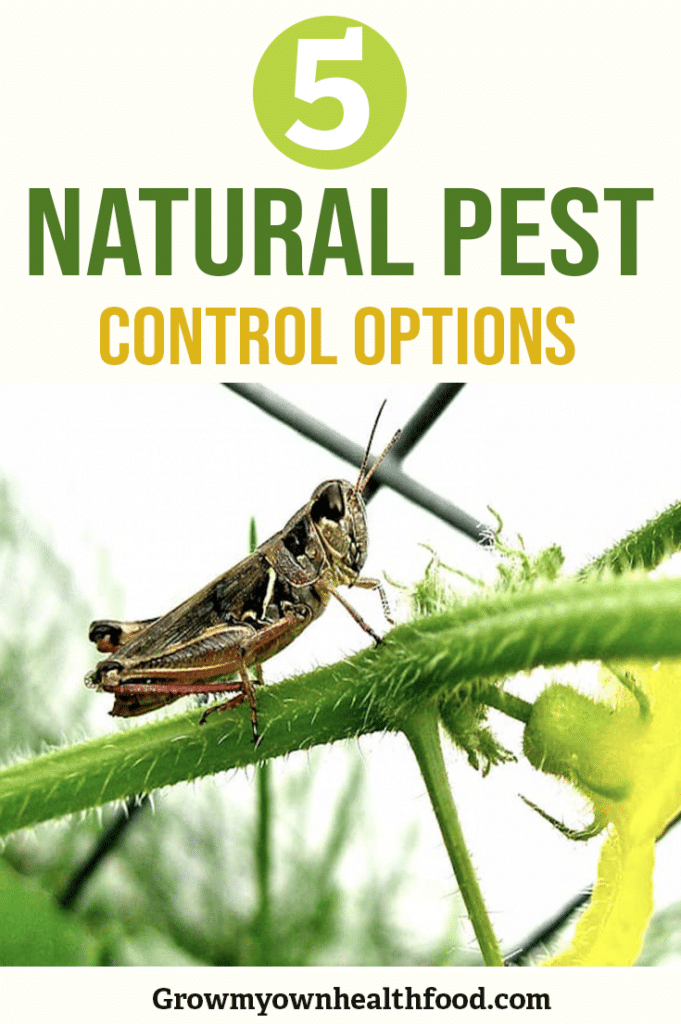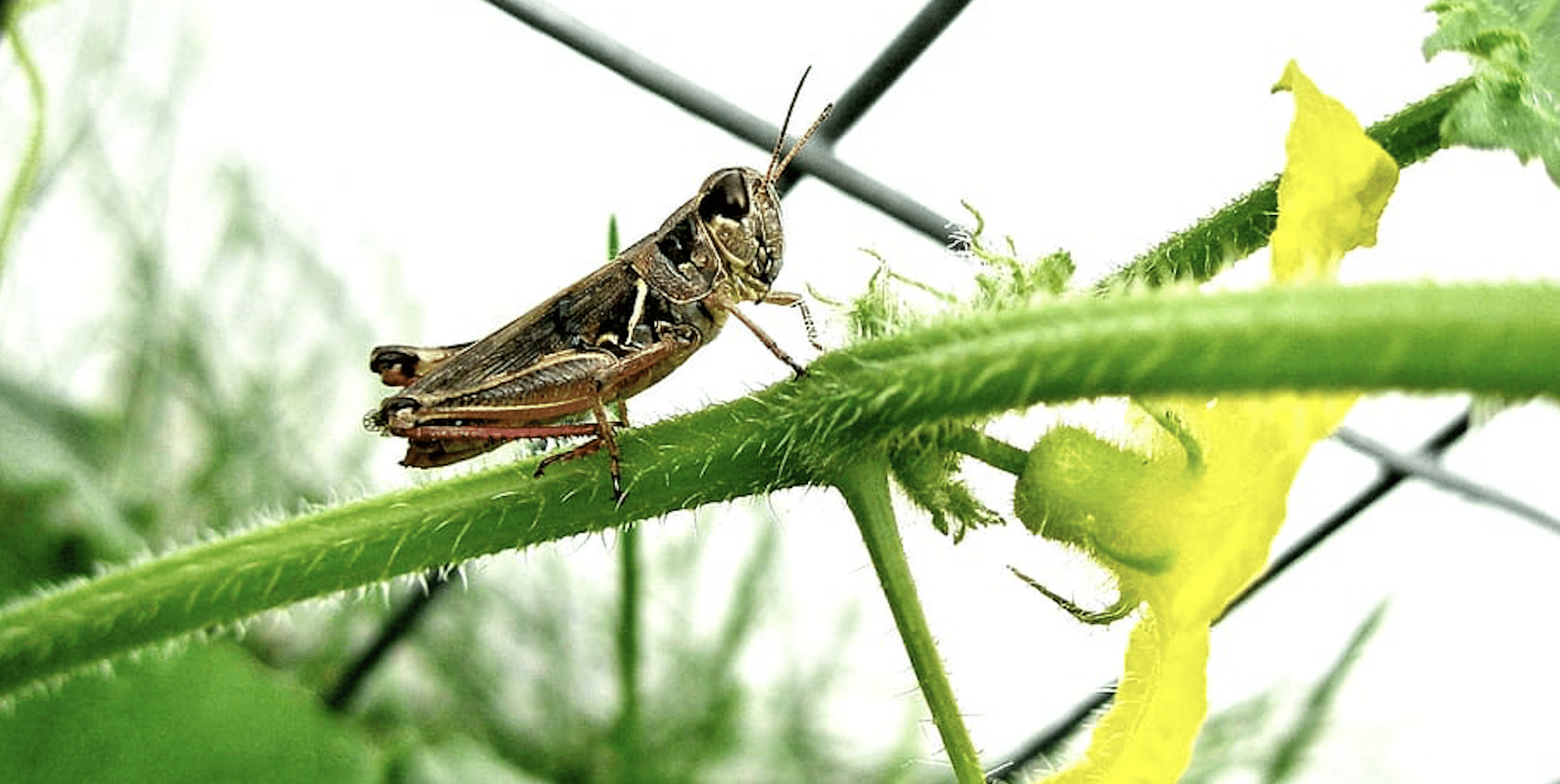Many studies have revealed the dangers of pesticides; from Alzheimer’s disease, cancer to birth defects. They are also one of the main causes of run-off pollution. Having pests in your garden reaping where they didn’t sow can be a real pain. But how can rid yourself of these pests and avoid dangerous pesticides? In this article, we will highlight 5 natural pest control options.
You don’t have to worry – natural pesticides are a better and safer alternative to all the chemical-laden pesticides out there. The beauty of this is that there is little to no negative side effects. They are derived from trees and plants, and as such are non-toxic to humans.
There are even natural pest control methods that don’t require you to apply anything to the plants. Crop rotation is an example. If you’re concerned about putting chemical pesticides on the crops that your family eats, then natural pesticides are your best option. Let’s take a look at 5 of the best natural pest control methods.
1. Neem Oil
- Neem Bliss is 100% Cold-pressed pure Neem Oil, completely natural, totally free of chemicals
- OMRI Listed (For Organic Use). Used in Organic Farming.
- JUST ONE INGREDIENT - 100% Pure Neem Oil, natural, cold-pressed. 100% non-toxic.
- Very effective Indoor/ Outdoor Plant Spray-High Azadirachtin content
Prices pulled from the Amazon Product Advertising API on:
Product prices and availability are accurate as of the date/time indicated and are subject to change. Any price and availability information displayed on [relevant Amazon Site(s), as applicable] at the time of purchase will apply to the purchase of this product.
A lot of people have been using neem oil as a natural pesticide for many years. The oil is derived from the seed of the Azadirachta Indica tree, and it’s very effective in keeping chewing and sucking insects away from your garden. A word of caution though, don’t apply it all over your garden at once, as few plants don’t tolerate it. Apply it on a small spot of each plant first and see the reaction before using on a wide scale. High dosage of it can also kill some plants. So, read the usage instructions on the bottle and follow accordingly. More so, it’s preferable to be applied in the evenings, and not under direct sunlight.
2. Horticultural oil
- Insect Killer - this pest control is great for use on aphids, leaf miners, leafhoppers, trips, spider mites, scales, whiteflies, mealybugs and many more. It gives poor control for caterpillars & worms. However, it does control eggs of all insects.
- Foliage protector - our insecticide is designed for use on a variety of trees & plants including corn, Potatoes, Apples, almonds, avocados, citrus, Peaches, pecans, blackberries, figs, pineapple and more.
- Dormant & growing season spray - this product is designed for safe use during both the dormant and growing season. Application during each season will increase the effectiveness of the products insect control.
- Organic gardening - our insecticide is OMRI listed and approved for organic gardening. Omri, the organic materials Review Institute, determines whether or not a product Qualifies as organic under the usdas national organic program.
- Easy to use - this product mixes readily with water. It should be applied using a pump up or trigger sprayer. Use enough spray solution to completely penetrate the leaf canopy and cover both top and bottom of all leaves until wet without runo
Prices pulled from the Amazon Product Advertising API on:
Product prices and availability are accurate as of the date/time indicated and are subject to change. Any price and availability information displayed on [relevant Amazon Site(s), as applicable] at the time of purchase will apply to the purchase of this product.
When it comes to horticultural oil, there is summer oil and dormant oil. You can use either of those to get rid of pests, but it’s preferable to use one that’s vegetable-based. Use summer oils when the leaves are still on the trees, and dormant oils when the leaves have fallen off. The dormant oil kills off mites and bugs that may still be in ‘slumber’ over the winter. So it’s best for when leaves have fallen from the trees.
Just like using neem oil, be sure to test any of the oils on a small spot of the plants first before applying to the whole plant. And it’s best applied in the evenings as well.
3. Diatomaceous Earth
- Natural Product - Composed of 4lbs of 100% ground freshwater diatomaceous earth with absolutely no additives or fillers.
- OMRI Listed - Listed with the Organic Minerals Research Institute, a non-profit organization that reviews products against organic standards.
- Powder Duster Included - Powder duster in the bag for easy and efficient application in difficult to reach areas.
- Hundreds of Uses - Mother natures best kept secret with hundreds of uses. We encourage you to explore the many benefits of food grade diatomaceous earth!
- Supports a Great Cause - Harris donates 10% of profits to support the local Etowah Valley Humane Socie
Prices pulled from the Amazon Product Advertising API on:
Product prices and availability are accurate as of the date/time indicated and are subject to change. Any price and availability information displayed on [relevant Amazon Site(s), as applicable] at the time of purchase will apply to the purchase of this product.
Diatomaceous Earth is made from crushed skeletons of microscopic creatures. When it’s applied on plants, and insects walk over them, the crushed part with microscopic sharp edges cuts the outer shells of the insects. The dehydration caused by these cuts, and the drying quality of the Diatomaceous Earth causes the insects to die. It’s chemical-free. You can mix with water and spray on the plants or apply around the base of the plant. Even though it’s chemical-free, be sure to rinse your veggies before eating to be on the safe side.
4. Companion Planting
- Large leaves with intense flavor & a wonderful aroma
- Garden use: Containers, herb beds, flower beds
- Culinary use: Italian & Asian dishes
- Plant in full sun for the best yields
- Plant after last spring frost
Prices pulled from the Amazon Product Advertising API on:
Product prices and availability are accurate as of the date/time indicated and are subject to change. Any price and availability information displayed on [relevant Amazon Site(s), as applicable] at the time of purchase will apply to the purchase of this product.
This is another good natural pest control method. It’s 100% risk-free and you don’t need to spray or apply anything on the plants. For this method, you’ll need to do some planning before the planting season. Here is how it works; you find plants that can help protect other plants and grow them alongside one another. For example, you can grow basil next to your tomatoes. The basil plant will help keep away flies and mosquitoes from the tomato plant. You don’t want to grow potatoes near tomatoes as this can lead to rotting diseases spreading from one to another.
5. Handpicking
- This micro cleaning kit removes dirt and dust from hard-to-reach places
- Ideal for cleaning computer components, vcrs, TVs, stereos, etc
- GOT DIRT? Shop-Vacs full line of products includes cordless, rechargeable wet dry vacuums, automotive vacuum systems, air movers, attachments & more. Whatever the job, Shop-Vac has you covered!
- AN AMERICAN ORIGINAL: Shop-Vac offers the most complete line of vacuum cleaners, bags, filters, attachments, kits, & other cleaning tools available for home, industrial, & commercial applications.
- TOUGH & DEPENDABLE: Shop-Vac Corporation is the recognized world leader in wet/dry vacuum cleaners. Since 1965, we have made innovative, high quality vacuum cleaners, filters, bags, & other accessori
Prices pulled from the Amazon Product Advertising API on:
Product prices and availability are accurate as of the date/time indicated and are subject to change. Any price and availability information displayed on [relevant Amazon Site(s), as applicable] at the time of purchase will apply to the purchase of this product.
Just as the name indicates, you handpick the bugs off the plants. It’s one of the simplest method of pest control, but time-consuming. You can employ one trick with this method though – attach a small hose to a shop-vac and use it to suck up the ‘bad boys’ on the plant. But note, even though using a shop-vac is faster, some delicate plants may not survive the force of a vacuum hose.
Conclusion
You run a lot of risk using chemical pesticides on your garden. You don’t need them. Choose natural pest control options instead. It’s for the good of everyone; your family and the environment.
Like this article? Pin it on Pinterest!







